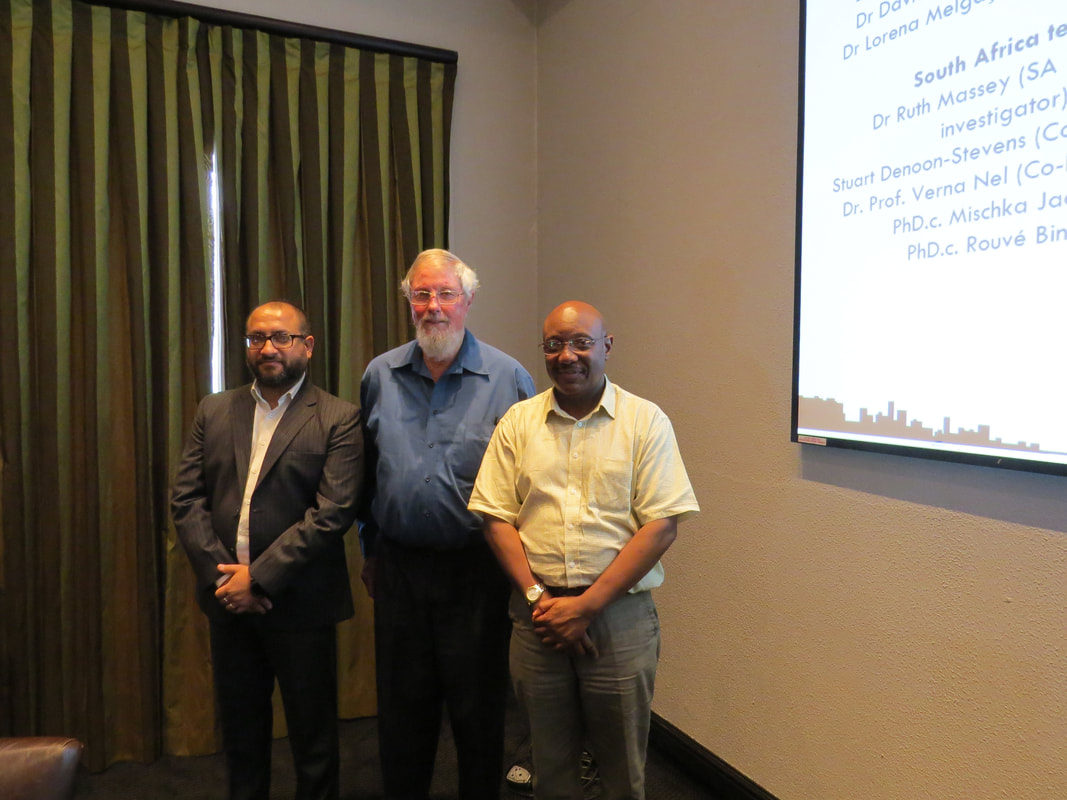 In October this year the South African Advisory Group met to discuss various aspects of the SAPER project with our current SA PI Ruth. The Group comprises Peter Robinson, Frederick Kusambiza, Anthony Barnes, Godfrey Musvoto, Aurobindo Ogra, Seana Nkhahle and Mark Oranje After an introduction to the project, our main aims and objectives, and the progress made to date, the Advisory Group spent the morning debating the strengths and weaknesses of South African planning education in South Africa’s higher education institutions, and discussing how the SAPER project might address these and other concerns that have been raised. The Advisory Group members are leaders in various South African planning fields (practice, academia, local government, and accreditation) and we are pleased to have this rich set of expertise on board. Some of the points that were raised during the meeting included the following: · There is a need to more fully recognise that apartheid planning has had an exclusionary and lasting impact on planning practice and planning education in South Africa and that this needs to be addressed. It is crucial that dialogue continues, particularly regarding planning education in the country and the need to train planners to be sensitive to inequality, segregation and socio-spatial challenges as well as the diversity of language, religion and culture in the country. · There is currently a mismatch between educational institutions and practice and there is a need for the two parties to interact in a more meaningful way. Employers and new employees struggle with expectations and the practical knowledge that the graduate has or has not gained. There is also the need to bring practice into conversation with academics to ensure that a richer more applicable education is provided. · There is a need to ensure students of planning also have the opportunity to specialise in various niche subjects (such as SMART cities and urban health – for example) over and above their basic planning qualification. This would ensure that the graduate is more employable and is provided with domain expertise and a niche qualification (specialisation) appropriate for a South African/African context. · South African students have limited options in terms of courses offered within their planning degrees. A different approach may be required that allows for dual specialisation and focal specialisation. · There is a gap between theory taught and the link to social aspects of planning. The practice of planning itself versus planning for people is something that needs to be addressed. · There is a need for planning curricula to pay equal attention to academic skills (e.g. theory), technical skills (e.g. GIS and other tools), and soft skills (e.g. report writing, negotiation, and presentation skills). These are all needed for a good curriculum and for planners that are trained to work within a practical planning context. · Wider skills are also needed such as an understanding of financial modelling and analysis as well as skills related to technology and systems management. · Social aspects of planning are crucial in the training of planners within South Africa. Planning for and with people is vital and skills are needed in areas such as asset-based planning, trade-offs, wants vs needs etc. Social planning skills are lacking amongst new graduates. The Advisory Group also provided useful contacts and links to resources that will assist the SAPER project’s aims, and were helpful in providing us with advice on the way forward with our next set of data collection activities and data analysis. Ruth Massey
0 Comments
|
AuthorThe SAPER blog is written by different members of the SAPER project team. Archives
March 2020
Categories |
Proudly powered by Weebly
 RSS Feed
RSS Feed